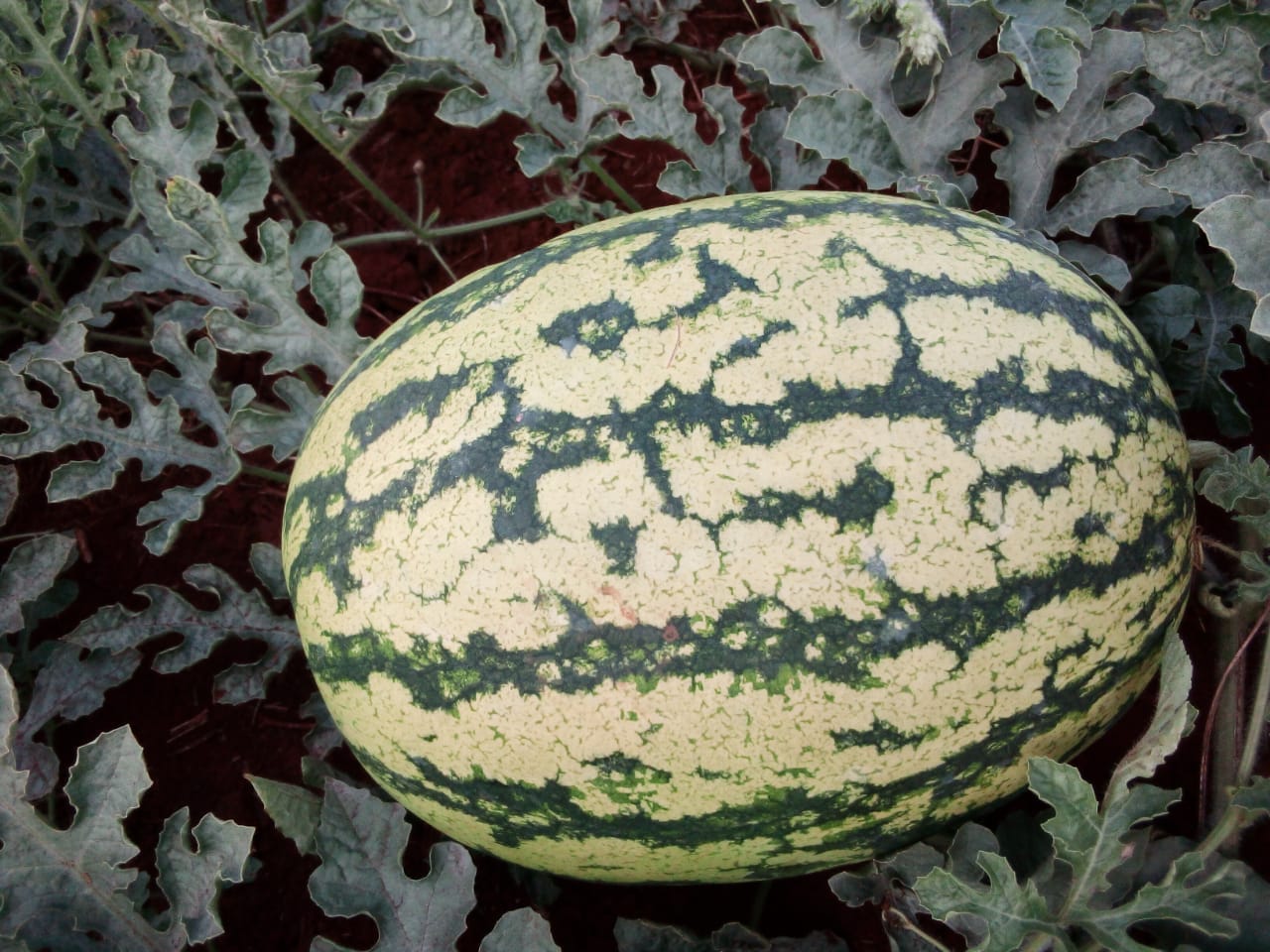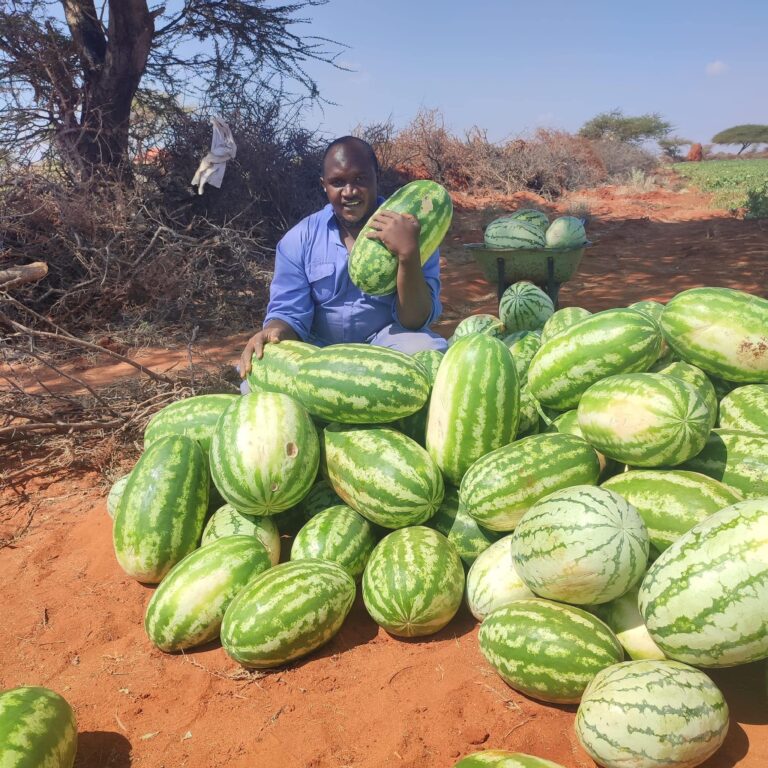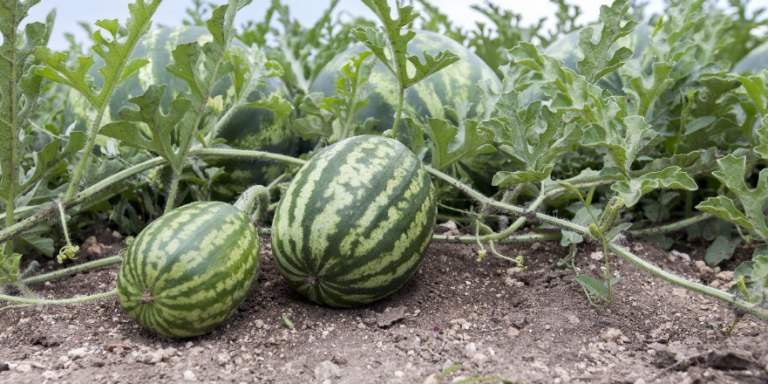Sukari F1 Watermelon Variety Farming In Kenya
Sukari F1 watermelon farming in Kenya is a lucrative agricultural venture that offers high yield potential and excellent fruit quality. With its average fruit weight of 7-8 kgs and maturity period of 80-90 days, the Sukari F1 variety is highly sought after in the market.
Its oblong shape, light green rind with dark green stripes, and deep red, crispy flesh make it a favorite among consumers.
For successful Sukari F1 watermelon farming, it is crucial to provide the ideal growing conditions. Long, warm growing periods with bright, hot days (27-35 degrees Celsius) and warm nights (16-21 degrees Celsius) are essential.
Avoid cool temperatures, excessive rainfall, and high humidity as they can negatively impact germination, growth, and fruit setting.
Characteristics of Sukari F1 Watermelon
Sukari F1 watermelons are characterized by their round to slightly oval shape and dark green stripes. The flesh is a vibrant red, offering a sweet and refreshing taste, which is a key reason for its high market demand. T
The fruits typically weigh between 8 to 10 kilograms, making them ideal for both local markets and export.
- Maturity Period: Approximately 80 to 90 days from planting to harvest.
- Sugar Content: High, with a Brix rating of 12-14%, indicating its superior sweetness.
- Resistance: Good resistance to common watermelon diseases like Fusarium wilt and Anthracnose.
Sukari F1 Watermelon Spacing, Seed Rate/Acre, Seed Cost & Yield
Proper agricultural practices are essential for maximizing the yield of Sukari F1 watermelons. Here are the recommended guidelines:
- Spacing: A spacing of 1.5 to 2 meters between rows and 0.5 to 1 meter between plants is ideal.
- Seed Rate/Acre: Approximately 500-700 grams of seeds per acre.
- Seed Cost: The cost of Sukari F1 seeds ranges from KSh 7,000 to KSh 9,000 per kilogram.
- Yield: Farmers can expect an average yield of 20 to 30 tons per acre, depending on soil fertility, climate, and crop management practices.
Sukari F1 Watermelon Farming In Kenya
The ideal soil for Sukari F1 watermelon farming is sandy loam, rich in organic matter, and well-drained. Maintaining a soil pH of 6-7 is recommended, and lime should be applied if the pH is too low. Proper seed rate, planting methods, and inter-cultivation practices are vital for optimal growth and yield.
Applying the recommended basal fertilizer and micronutrients at different stages of growth is necessary for the successful cultivation of Sukari F1 watermelons. Regular weeding, proper irrigation, and ensuring sufficient pollination are essential for crop health and fruit quality.
Harvesting should be done at the right maturity stage, indicated by specific color changes in the rind, drying of tendrils, and other observable signs. With good agricultural management practices, the yield potential of Sukari F1 watermelons can reach up to 25 tons per acre.
Key Takeaways:
- Provide long, warm growing periods with optimal temperature and humidity for Sukari F1 watermelon farming.
- Cultivate Sukari F1 watermelons in well-drained sandy loam soil with a pH of 6-7.
- Apply recommended basal fertilizer and micronutrients at different growth stages.
- Ensure proper inter-cultivation practices, irrigation, and sufficient pollination for optimal crop health.
- Harvest Sukari F1 watermelons at the right maturity stage to maximize yield potential.
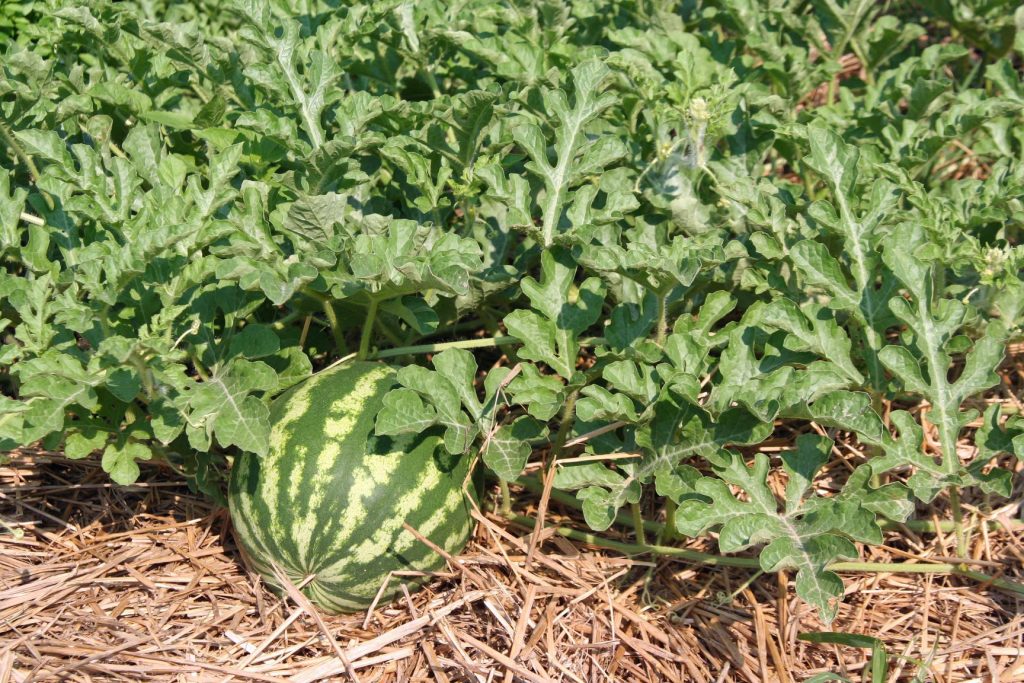
How to Start Sukari F1 Watermelon Farming in Kenya
If you’re considering starting Sukari F1 watermelon farming in Kenya, you’re in the right place. With its disease resistance, high yield potential, and excellent fruit quality, the Sukari F1 variety is a popular choice among farmers and consumers.
To begin your Sukari F1 watermelon farming venture, you’ll need quality seeds, fertile land, and a sustainable water source. The variety is well-suited for the hot regions of Kenya and can be grown in both rainfed and irrigated conditions.
The total cost to start a one-acre Sukari F1 watermelon farm is estimated to be around 100,000 Kenyan shillings.
This includes expenses for seedlings, land preparation, irrigation equipment, fertilizer, and initial harvest costs. However, with good management practices, you can yield over 30,000 kilograms of watermelons per acre and generate revenue of up to 700,000 Kenyan shillings.
The profit margins are high, and Sukari F1 watermelons have a long shelf life, reducing the risk of harvest losses.
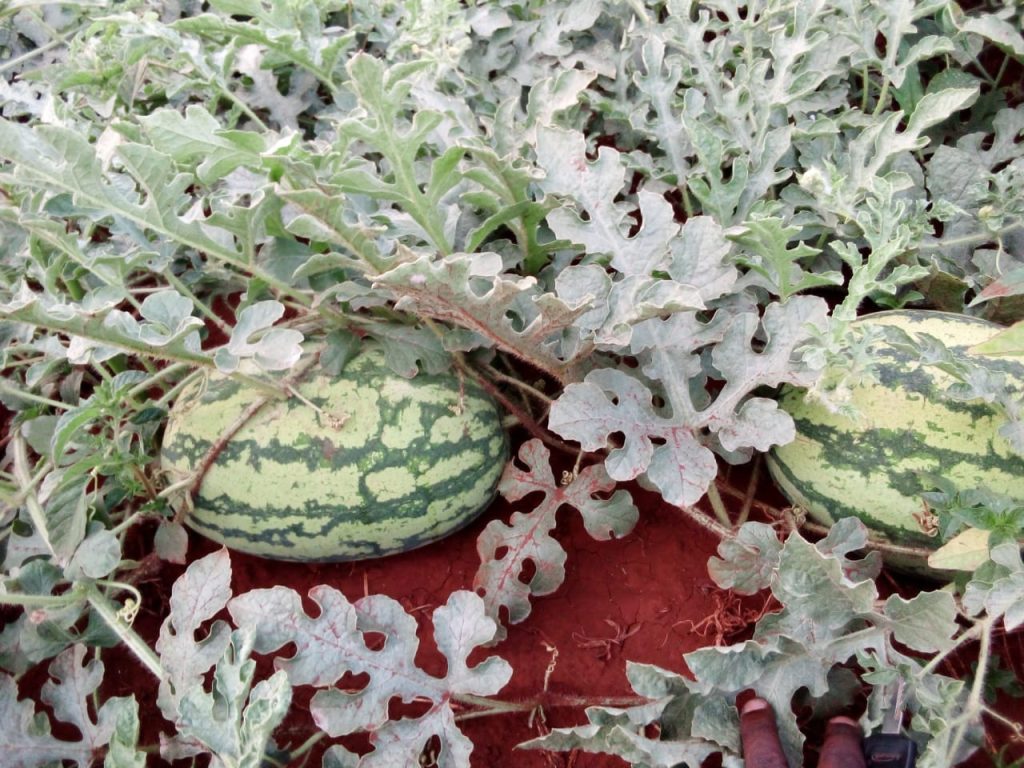
Starting Sukari F1 watermelon farming in Kenya can be a profitable agribusiness venture that allows you to tap into the growing demand for watermelons in the market. With proper land preparation, seed selection, irrigation, and fertilization, you can ensure a successful Sukari F1 watermelon harvest and maximize your profits.
Table: Estimated Cost Breakdown for Starting a One-Acre Sukari F1 Watermelon Farm in Kenya
| Expense | Estimated Cost (in Kenyan Shillings) |
|---|---|
| Seeds | 10,000 |
| Land Preparation | 20,000 |
| Irrigation Equipment | 15,000 |
| Fertilizer | 30,000 |
| Initial Harvest Costs | 25,000 |
Note: These cost estimates may vary depending on local factors and market prices.
By investing in Sukari F1 watermelon farming, you can embark on a profitable agricultural journey that not only provides a livelihood but also contributes to the economic growth of the agricultural sector in Kenya.
Tips for Successful Sukari F1 Watermelon Farming in Kenya
Watermelon farming in Kenya, particularly with the Sukari F1 variety, offers a range of benefits for farmers. With the growing demand for watermelons in Africa, this high-value crop presents a lucrative opportunity for agricultural entrepreneurs.
Not only is watermelon farming relatively easy to start and maintain, but it also requires minimal management practices compared to other crops.
Sukari F1 watermelons are well-suited to the hot regions of Kenya, thriving in both rainfed and irrigated conditions. These fruits are not only composed mainly of water but are also rich in essential vitamins and minerals, making them a healthy and nutritious choice.
With their short maturity period of 70-80 days, watermelons allow for multiple harvests in a year, which significantly increases the income potential for farmers.
By following best practices for watermelon farming, such as proper soil preparation, careful seed selection, effective irrigation, and appropriate fertilization, farmers can ensure a successful Sukari F1 watermelon harvest.
The high market value, nutritional benefits, and quick return on investment make Sukari F1 watermelon farming a profitable venture that contributes to the economic growth of farmers and the agricultural sector in Kenya.
Sukari F1 Vs Maridadi F1
Comparing Sukari F1 with Maridadi F1 reveals several differences and similarities:
- Yield: Maridadi F1 generally yields slightly more per acre (25-35 tons) compared to Sukari F1 (20-30 tons).
- Fruit Size: Maridadi F1 fruits are larger, averaging 10-12 kg, whereas Sukari F1 fruits weigh around 8-10 kg.
- Taste: Both varieties are sweet, but Maridadi F1 is noted for its superior sweetness.
Sukari F1 Vs Fahari F1
When comparing Sukari F1 with Fahari F1, farmers should consider these factors:
- Disease Resistance: Sukari F1 has a good resistance profile, but Fahari F1 is known for its exceptional resistance to a wider range of diseases.
- Maturity Period: Sukari F1 matures in 80-90 days, similar to Fahari F1.
- Yield: Both varieties offer comparable yields, but Fahari F1 may have a slight edge in harsher growing conditions due to its robust disease resistance.
Sukari F1 Vs Julie F1 Watermelon
Julie F1 is another popular variety in Kenya. Here are some comparisons with Sukari F1:
- Fruit Shape: Sukari F1 has a round to slightly oval shape, while Julie F1 fruits are more elongated.
- Sugar Content: Sukari F1 generally has a higher sugar content, making it sweeter.
- Market Preference: Sukari F1’s sweetness and uniform size give it a competitive edge in the market.
Sukari F1 Vs Tunda F1 Watermelon
Comparing Sukari F1 and Tunda F1:
- Yield: Sukari F1 and Tunda F1 have similar yield potentials.
- Disease Resistance: Both varieties are resistant to common diseases, but Tunda F1 is often preferred in regions prone to specific pests.
- Maturity Period: Both varieties mature within 80-90 days, making them suitable for similar planting schedules.
Sukari F1 Yield Per Acre
The yield per acre for Sukari F1 watermelon is impressive, with farmers typically harvesting between 20 to 30 tons per acre. This yield can be optimized through proper irrigation, pest and disease management, and adherence to recommended spacing and seed rates.
Sukari F1 Watermelon Price
The market price for Sukari F1 watermelon varies based on factors like season, demand, and location. Typically, Sukari F1 watermelons sell for KSh 20 to KSh 25 per kilogram. Its high sweetness and market appeal often result in stable demand and good prices.
FAQ
How much does a Sukari F1 watermelon yield per acre? Sukari F1 watermelon can yield between 20 to 30 tons per acre, depending on the cultivation practices and environmental conditions.
How many grams of seeds are needed for Sukari F1 watermelon per acre in Kenya? Approximately 500-700 grams of Sukari F1 seeds are required per acre.
How much is 1 kg of Sukari F1 seeds in Kenya? The cost of 1 kg of Sukari F1 seeds ranges from KSh 7,000 to KSh 9,000.
How to plant Sukari F1 watermelon? To plant Sukari F1 watermelon, prepare the land with well-drained soil, ensure proper spacing (1.5-2 meters between rows and 0.5-1 meter between plants), and plant seeds at a depth of about 1-2 cm. Adequate watering and pest management are essential for optimal growth.
What are the key differences between Sukari F1 and Maridadi F1 watermelons? Maridadi F1 generally has a higher yield and larger fruit size compared to Sukari F1, with superior sweetness and juiciness.
How does Sukari F1 compare to Fahari F1 in terms of disease resistance? Both varieties have good disease resistance, but Fahari F1 is known for its exceptional resistance to a wider range of diseases.
Conclusion
Sukari F1 watermelon variety is a robust and sweet option for farmers in Kenya. With its high yield potential, disease resistance, and market appeal, it stands out as a profitable choice.
Understanding its characteristics and comparing it with other varieties like Maridadi F1, Fahari F1, and Julie F1 helps farmers make informed decisions to maximize their productivity and profitability.
